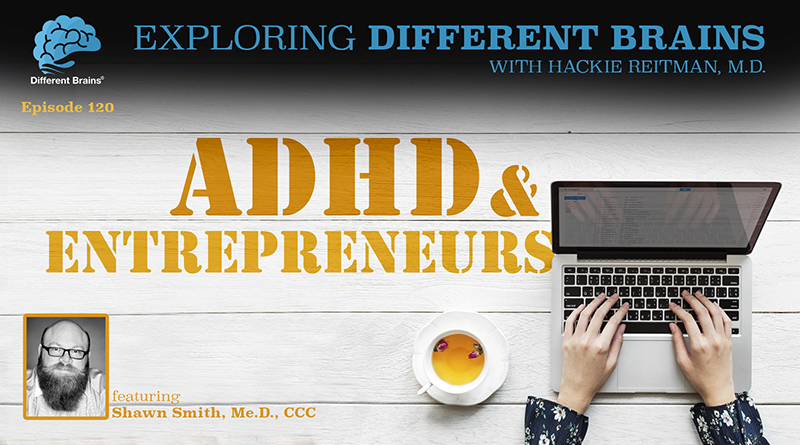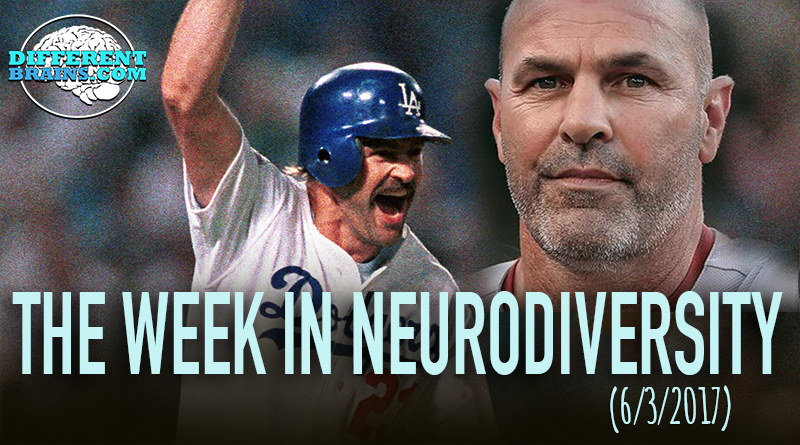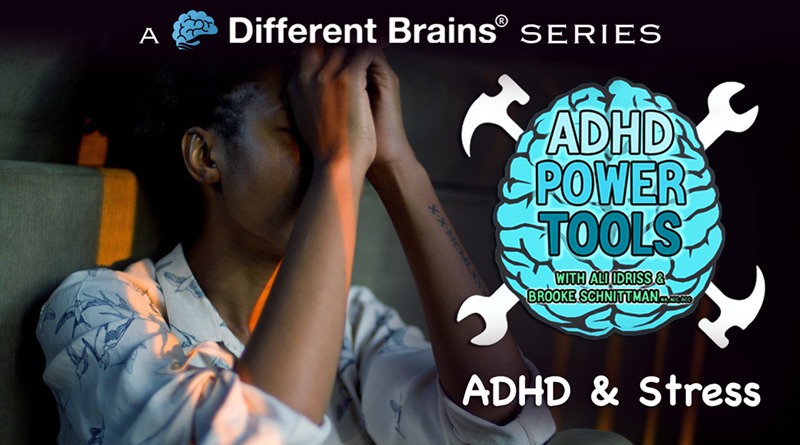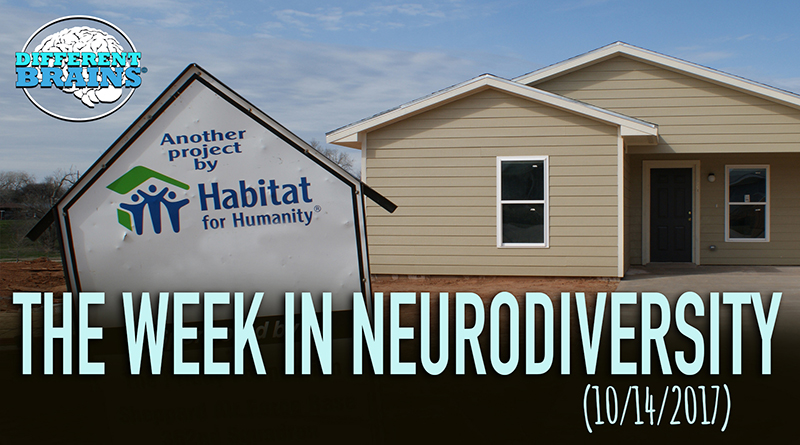
ADHD & Entrepreneurs, with Shawn Smith, Me.D., CCC | EDB 120
(16 mins) In this episode, Dr. Hackie Reitman welcomes back regular guest Shawn Smith, Me.D., CCC. Shawn is a successful Canadian entrepreneur, a neurodiversity advocate and consultant, and founder of Don’t Dis-my-Ability. Shawn discusses his own history struggling and succeeding with ADHD, the importance of neurodiversity to a workplace, and why entrepreneurship was the answer to his search for a lasting career.
For more about Shawn’s work, visit: http://www.ddmacs.ca/
.
55 Second Preview:
.
To listen or download the podcast version of this episode, see the embedded player below.
Or look for us on your favorite podcast provider:
iTunes | Stitcher | SoundCloud
[expand title=”View Full Transcript”]
HACKIE REITMAN, M.D. (HR): Hi I’m Dr. Hackie Reitman, welcome to another episode of exploring Different Brains and today we got a regular a regular on our show, this is the great Shawn Smith from all the way up in Canada whose company is “Don’t Dis My Ability” which advocates and counsels and helps out all of us whose brains might be a little bit different and you’re soon going to hear Shawn Smith’s brain is a lot different Shawn how are you.
SHAWN SMITH, Me.D., CCC (SS): I’m doing great Hackie thanks for having me back.
HR: For those who have not seen you on Exploring Different Brains before and those who are not familiar with you, why don’t you introduce yourself.
SS: Sure I’m Shawn Smith, I’m the founder and CEO Don’t Dis My Ability I’m a counselor and psychotherapist by trade and I specialize in the emerging field of neurodiversity. To me, neurodiversity I guess represents a group of individuals with a disability label for whom the term disability doesn’t quite fit because our assets exceed any deficits we experience, and I’m unique in the way that I identify as being neurodiverse and I specialize in working with neurodiverse individuals and their families in a lot of different capacities so my my form of neurodiversity is ADHD inattentive type. I was diagnosed at the ripe age of thirty and prior to my diagnosis it took me four years to finish three years of high school 32 attempts turn 18 credits required to graduate, including failing grade 10 math four times. I managed to get snuck into college to play football brought my grades up I did eventually graduate with a Bachelor of Arts degree and a whopping 2.3 GPA. Fast-forward to being diagnosed and you know medication basically took my brain thought process from dial-up to fiber. I went back to school as mature student taking five courses a new GPA of 3.7 I was accepted to the Masters of Education and counseling psychology program at the University of Brunswick 2010 and graduated a year later at the top of my class so. Very unique lens through which to help people.
HR: Well congratulations on all you’ve achieved and your inspiration to so many others with the work that you do. Now something that caught my ear last time we spoke was how when you all move temporarily to Reno Nevada and you became a blackjack dealer that that’s when you kind of learned math with the chips and everything explain that.
SS: Right well I’ll correct it was actually in Lake Tahoe and the reason why the location is significant is because Lake Tahoe’s where the rich and famous go to play. There’s a lot of money that goes into Lake Tahoe and they’re busy tourist seasons and so like this is where Michael Jordan has a celebrity golf tournament like this is a big deal. I didn’t know how to count change, I didn’t play board games I couldn’t remember simple instructions. Anytime I would go to count change out of my pocket I would just get so frustrated and pissed off because it would be like somebody turned out the lights and erased the process from my memory to the point I would get so frustrated and anxious that I just put it in my pocket and walk away. Of course you know that having to do that over my entire life caused a great deal of anxiety and depression and then my girlfriend at the time now a wife we just kind of rolled the dice I guess and decided to move to Lake Tahoe. I just wanted to be a slot attendant. I knew that I couldn’t play I couldn’t remember basic instructions or play games I knew that I couldn’t count so I really just wanted to be a slot attendant I just wanted to empty the slot machines take the money to the vault fill them back up, but because I was the English-speaking Kanak they really pushed me to do that. At that time there were 2000 Polish people that would migrate to Lake Tahoe to account for the big tourist boom and a big part of gambling, from the casinos perspective, is to get people to forget why they’re in the first place. Which is to lose their money. So having somebody who excuse me who speaks English to them was very important and so they really pushed and pushed me to do that. It really was a huge catalyst and shift in my thinking because I had something tactile to manipulate and I was able to chunk numbers up and work through them you know right in front of me with the poker chips. I was then able to do the mental math in my head whereas before there was no context so I wasn’t able to put something together in my head in a coherent way that made sense like a transfer into something in front of me that would have worked It really started to kind of questioned and challenged these things that I had learned and that I’ve been taught you know. I grew up thinking that I was I was dumb and stupid you know and when you failed grade 10 math four times and you have all these tutors who try to teach me the same thing the same way I realized why it couldn’t work you know. So here I am in in Lake Tahoe of all places and I’ve got a pit boss who has no formal education and teaching yet they’re able to teach me how to count when none of these other professionals could.
HR: Amazing. Reminds me of my uncle Mo who worked in the slots at Caesar’s Palace for 25 years and uncle Mo just to tease me when I was growing up he’d put his arm on my shoulder and say we all knew you were going to be a failure but we didn’t think it’d be this quick and then he’d laugh. For those people watching who have a child there whose brain is a little bit different, who’s not really succeeding or you’re the individual yourself whose brain is different I’m watching Shawn Smith. What advice do you give them in general?
SS: Really I try to challenge people’s perceptions around systems in the way that things are done you know. A lot of it is really and sharing different stories about myself you know learning to count is one but also reading. I used to say that I couldn’t read or I didn’t read. One of the best books I’ve ever read was called the gift of therapy die by Dr. Urban Nyalam and one of the reasons why I love that book is because each chapter’s only three to five pages. So when you think of the psychology of textbooks you know for somebody with ADHD or a reading disability you know or even a processing disability I would read a few pages and I would forget what I’d read you know. So I once I read that book and just having all these aha moments I realized it wasn’t me I’m awesome, it had to be them you know. So I say now that it’s not that I can’t read or that I don’t read, it’s that the publishing world just hasn’t done a good enough job at creating a book that holds my attention.
HR: What do you have tosay about employment which is a really big part of achieving and maximizing if you’re able to, your independence?
SS: Yeah well I mean again for me a big part of what I do is it’s just being the example. I myself identify as being individual with a disability. I started my own company in 2014 and I really boast that I’ve been able to do something that no other company has been able to do since 2002 which is keep me employed for longer than 18 consecutive months at a time right. I waited and waited for this opportunity that never came and then I created my own and in just a few short years I went from you know being an unknown in my industry to being a national award-winning entrepreneur with a disability right. So it’s just being that role model for other people to show them how we’ve been able to make the impossible possible, to give them a tangible example to look at and to look up to.
HR: Well Sean Smith you’ve certainly been a great role model for so many and you brought up something earlier I want to touch on. You said very matter-of-factly and speaking about your ADHD and of course when you are failing at this and that then of course you would have anxiety you’d have some depression. This is what I find is lacking, is that a recognition that none of this stuff exists in isolation they’re all comorbidities. Could you expand upon that a little bit?
SS: Sure well in a lot of cases I find it’s the the classic case of what came first the chicken or the egg you know. I think sometimes the ADHD kind of gets overlooked because these individuals are experiencing anxiety and depression. So, the characteristics that are common in some cases there’s a lot of overlap but you know you in a lot of cases you can’t have one without the other you know, especially when you talk about comorbidity with ADHD it’s it’s very rare that someone is diagnosed exclusively with ADHD. Oftentimes there is anxiety, depression, or some other form of learning disability and now what I find is happening a lot more and more clients and individuals who are on the autism spectrum or identify as having Asperger’s are also being diagnosed with ADHD. So there’s kind of a shift there, because you know I think the way that the medical system worked before it was almost like a pity system. Like well we don’t need to tack anything on they’ve already got diagnosed with autism, we don’t need to add anything more to that. Well you do actually if you actually want to help these people and get a better understanding of their thought process but even in that in that statement there’s this implied less-than mentality where and I think I’ve mentioned this to you before. You know when somebody walks through my door and they disclose that they have an invisible disability the first thing I say to them is welcome to the world of the uniquely gifted. We’re not talking about what’s wrong with you this is what’s right with you so we’re really challenging people and shifting their thinking of from being less than you know being exceptional.
HR: Well that’s very well said and well put. You know the reason I made the first chapter of Aspertools anxiety is because it rules all of us, and certainly when you have a part of your brain that’s different and making a bigger challenge for the other parts of your brain that’s going to be amplified. Tell us some of your latest projects Sean.
SS: Jeez Hackie.
HR: Oh well I know you have ADHD so I know you’re doing a million at one time.
SS: Sure right and I make a point kind of bringing that up you know because I have a unique understanding of my thought process and how my brain works I know that they can’t do the same thing all day every day I get bored and I get resentful. So I’m constantly finding innovative partnerships or people find me to collaborate on different projects. So right now we’re rebranding the podcast, which is exciting. I’ve got 15 confirmed guests including yours truly which would be a great honor. I’ve got my parenting program that I’m working on so I’m developing an online parenting course for parents, grandparents, and caretakers of neurodiverse children. Those are the ones I’ll talk about now I’ve got a few more coals in the fire but I’ll wait until they take off a little bit more before Ishare them.
HR: Have you written any books?
SS: You know Hackie I started writing two books and I think one of the challenges that I have as an individual with ADHD is that my fingers can’t keep up to my brain and so I’ve started recording more video and will eventually find someone to transcribe.
HR: Well I was just going to suggest that Sean. You know what I do when I when I write is I Italk into my cell phone which you know writes it out for me and everything or just make a voice file and get it transcribed. What’s interesting and like when I wrote the movie The Square root of Two when I would write a scene by hand and then take another stab at it typing it and then take another stab at it dictating it was like three different scenes, because it uses different parts of your brain. You have a gift for gab and I would imagine it would be much easier for you to write by talking than by writing per se. The other thing is the style comes out the way you talk, you know, which is why Aspertools came out the way I talk.
SS: I find it’s more engaging that way right and that’s why for the video content I’m creating for my parenting program I started, it was just going to be all written. However, I realized through my work with the my clients, my counseling clients, the success that I’m experiencing it’s because it’s in person. It’s hard to develop you know communication style and comfort with a person you can’t see you know and I think that’s what ultimately helps us do what we do and reach the people that we do. It’s not something that is just talked about out there. It’s something tangible for people to see.
HR: Especially for you because you got the whole Canadian Santa Clause thing going on you know.
SS: I call it the urban Santa or the young Santa look. That’s what I ask my barber for when I go in. Give me the hip Santa.
HR: For all of our Different Brains viewers and listeners and readers who want to learn more about you what’s the best way for them to do that?
SS: Well you can check out my www.ddmacs.ca if you are on any social media platform you can find me there. This is another area, Hackie, where my unique gift has come out in the way of social media you know. So I’ve got a couple different Twitter accounts I’ve got a YouTube channel, Instagram, LinkedIn, but now especially Twitter when I wasn’t busy making money I had to find ways to invest time and myself. So no formal training itself in social media but now people are paying me to help them with their social media strategy. I’ve got about 3,700 followers on Twitter my thirty seven hundred followers, probably close to 90 million. It really is incredible the reach that you can have in sharing your own unique story and I think it’s an important message to share with people you know. I think people with disabilities don’t see the uniqueness to their story, they’re so used to being put down or not recognized or feeling less than that they don’t acknowledge that that their story is actually empowering and there are more of us out there than people think. I compare us to X-Men right, and if you look at the movies the comparisons are eerie and I have to say you know there are some days I feel like Dr. Xavier but I find myself more and more leaning towards Magneto.
HR: Well Sean it’s been another great episode of Exploring Different Brains thanks to you coming back with us thank you for being with us all the way from Canada keep up the great work you ‘re doing there at Don’t Dis My Ability Shawn Smith thank you very much.
SS: Anytime, you can get in touch with me anytime I’d be happy to help out
[/expand]
.




